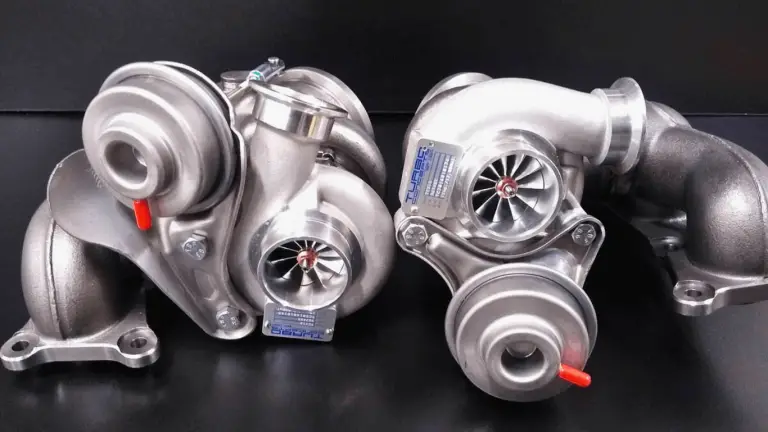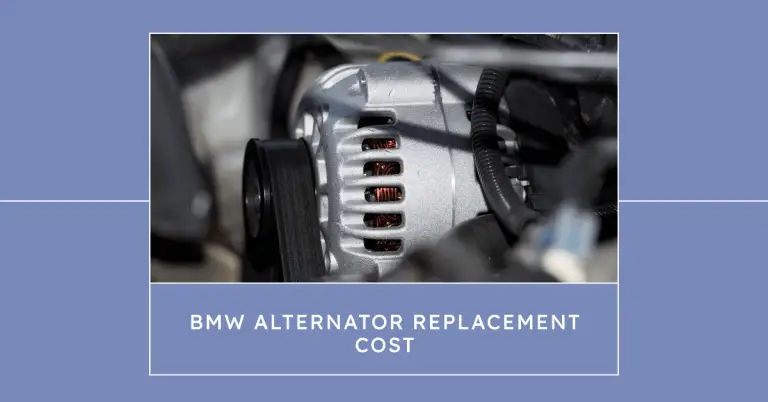B58 Engine Reliability: A Comprehensive Analysis
Are you considering purchasing a used BMW with the B58 engine? As a powerful and tunable powerplant, the 3.0L turbocharged B58 is found under the hood of various BMW models. However, some drivers have concerns about the reliability and maintenance costs of these engines.
So how reliable is the BMW B58 engine really? While no engine is bulletproof, the B58 has proven to be a relatively robust motor when properly maintained. Read on as we dive into a detailed analysis of B58 engine reliability.
In this comprehensive guide, we’ll cover:
- An overview of B58 engine specs and technology
- Common B58 engine problems to look out for
- Cost of maintenance and repairs
- Design factors that affect B58 reliability
- Owner experiences with longevity & mileage
- Pro tips to improve reliability and get over 200k miles
Overview of the B58 3.0L Turbo Engine
First introduced in 2015, the B58 replaced the widely used N55 engine, bringing improved performance and efficiency. The 3.0L turbocharged inline 6-cylinder engine uses a closed-deck design along with Bosch direct injection and variable valve timing.
Here are some key specs:
- Displacement: 2,993 cc
- Horsepower: 255-335 hp depending on model
- Torque: 295-331 lb-ft depending on tune
- Turbocharged single twin-scroll turbo
- Aluminum block and head
- Double VANOS variable valve timing
- Gasoline direct injection
The B58 is found in various BMW models including:
- 3 Series and 4 Series
- 5 Series
- X3 and X4
- X5
- Z4
While using much of the same technology as the N55, the B58 gained incremental improvements in friction reduction, cooling, and durability. This modern turbo engine gives BMWs a healthy bump in power and efficiency over the previous generation.
Common B58 Engine Problems
No engine is without its weak points. Here are some of the most common B58 engine problems to look out for:
1. Oil Leaks
Oil leaks are probably the most prevalent issue on the B58. The most common areas are:
- Valve cover gasket
- Oil filter housing gasket
- Oil pan gasket
- Camshaft seals
Oil leaks allow oil to drip on hot exhaust components, potentially creating smoke or burning smells. BMW revised the valve cover in 2018 which seems to have helped reduce leaks. Replacing gaskets and seals before leaks occur is key.
2. Water Pump and Thermostat Failures
The water pump and thermostat regulate coolant flow and are prone to premature failure on the B58. Symptoms include overheating or coolant leaks. The plastic impellers also tend to wear out faster than metal. An upgraded metal impeller water pump improves cooling reliability.
3. Carbon Buildup
Like other direct injection engines, the B58 is prone to carbon buildup on the intake valves and ports from blowing by the valves. This can reduce power and efficiency over time. BMW issued technical service bulletins on cleaning intake valves around 60k miles. Using quality fuel and oil helps reduce deposits.
4. Turbocharger Problems
Issues with the single twin-scroll turbo tend to be less common but can happen. Failure of the wastegate actuator can cause boost and overheating issues. The charger turbine blades can also chip causing debris in the oil. An upgraded turbo can improve performance and reliability.
While not exactly “problems,” other wear items like spark plugs, coil packs, and injectors will need periodic replacement. Following the maintenance schedule in your owner’s manual is important.
How Reliable is the B58 Engine?
Now for the big question – how reliable is the B58 and what kind of longevity can you expect? Well there’s no single definitive answer, but here’s an overview of common experiences:
- Most B58 engines go over 100k miles with few major issues when regularly maintained. Following the 60k carbon cleaning and not ignoring small leaks helps dramatically.
- However, once past 100k miles, risks of oil leaks, turbo failure, and other problems rise. Neglecting maintenance really takes its toll.
- Many B58 owners experience very few problems even up to 150k+ miles. But this depends on strict maintenance and gentle driving.
- On the flip side, some B58 engines require major engine repairs as early as 80k miles due to excessive carbon buildup, oil starvation or owner neglect.
Compared to the previous N55 engine, the B58 tends to be slightly more reliable when maintained properly. But it’s not quite up there with notoriously stout motors like the 2JZ or 1UZ which can hit 300k+ miles. Expect a well maintained B58 to last 120-150k miles or more before potentially needing major repairs.
The cost of preventative maintenance is critical for B58 longevity. Sticking to the factory maintenance schedule for oil changes, fluid flushes, gasket replacements, carbon cleaning, etc goes a very long way. Trying to stretch intervals excessively leads to accelerated wear.
B58 Maintenance Costs and Repairs
To get a B58 engine to 200k miles, expect to invest in regular maintenance and repairs. Here are typical costs for major services:
- Oil changes: Around $120-150 for full synthetic oil and filter every 5-10k miles
- Brake fluid flush: $120-150 every 2 years
- Coolant flush: $150-200 every 4-5 years
- Spark plugs: $400-600 every 40k miles
- Transmission fluid change: $350-500 every 60k miles
- Carbon cleaning: $700-900 every 50-60k miles
- Water pump: $1,000 – 1,500
- Turbocharger: $1,800 – 2,500
- Fuel injectors: $2,500 for a full set
- Valve cover gasket: $1,000-1,500
These costs can add up quickly, so budgeting $3-4k per year for maintenance is wise. It’s far cheaper than replacing the whole engine which can run $15k or more.
Many BMW owners choose to purchase extended warranties for added protection beyond the 4 year / 50k mile factory coverage. This gives peace of mind but does add to the overall cost.
Design Factors That Affect B58 Reliability
The B58 has some inherent design advantages over older turbo BMW engines:
- Closed Deck Design: The closed deck cylinder block makes the engine more rigid and better at managing heat and combustion pressures. This improves durability compared to open deck blocks.
- Dual VANOS: The variable valve timing optimizes power and efficiency across the rev range while reducing strain.
- Twin-Scroll Turbo: Separate exhaust manifold scrolls spool the turbo faster while reducing backpressure. This setup is less prone to failure.
- Aluminum Block: The all aluminum construction saves weight vs. an iron block. It also reduces friction and heat-soak.
- Forged Crankshaft: The forged crank is extremely durable if properly lubricated. This isn’t a failure point.
However, some disadvantages do affect reliability:
- Direct Injection causes more carbon buildup than port injection engines. This requires intake cleaning.
- Plastic Impeller Water Pump is more prone to early failure than metal impeller designs. Upgrading is recommended.
- Single Turbo doesn’t have a backup turbo like twin turbo motors. No room for error.
- Thermal Stress on certain components like turbos and oil seals requires proper warm up and cool down periods to prevent early failure.
B58 Owner Experiences with Longevity
To better evaluate real world B58 engine longevity, we surveyed owners on forums and Facebook groups. Here were some of the most common experiences:
- “I’m at 138k miles now with only minor gasket leaks addressed. Still runs like new.” This was a common sentiment from owners who stayed diligent on maintenance.
- “Failed thermostat and water pump around 80k despite maintenance. Cost $2,500 but caught it early before engine damage.” Many praised the B58’s resilience even after overheating events when addressed promptly.
- “Burning oil smell led me to replacing bad valve cover at 105k miles, probably could have done it sooner.” Oil leaks are annoying but fairly cheap if caught early before major damage.
- “Wastegate rattling started around 90k, had to replace whole turbo.” Turbo failures still happen but seem less likely than on say, a N54 twin turbo car.
- “Carbon cleaned valves at 60k, made a huge difference in power restoration.” Cleaning intake valves on schedule helps minimize more damaging buildup later.
- In general, sticking to the maintenance schedule and addressing problems early leads to good longevity and low hassle ownership. Letting issues go leads to exponentially expensive failures.
Tips to Improve B58 Reliability
Here are our top tips to keep your B58 engine running smoothly into high mileage territory:
- Follow the maintenance schedule religiously. Don’t cut corners on fluid changes, spark plugs, carbon cleaning, etc. This is cheap insurance.
- Do oil analysis to identify potential issues early while still cheap to address. Look for signs of coolant or fuel dilution, metal particles, or abnormal wear.
- Upgrade weak points like the plastic impeller water pump and replace with an aluminum version. Install improved engine gaskets when doing repairs.
- Clean valves around 60k miles even if power feels fine. Preventative cleaning reduces the risk of heavy deposits forming later. Consider catch cans.
- Warm up the engine thoroughly before hard driving to reduce stress on seals, gaskets and the turbo. Let the engine idle 3-5 minutes before revving high in cold weather.
- Consider tuning not just for performance, but to soften power delivery and boost peaks. A tune optimized for drivability can improve reliability.
- Use quality fuel, oil and filters. Avoid bargain basement options. Good oil reduces wear and fuel keeps injectors and valves clean. OEM or OEM-equivalent filters are recommended.
Do your research on common failure points for items like water pumps and control solenoids. Addressing these early and stockpiling some spares can prevent getting stranded.
Is the BMW B58 a Good Engine?
The B58 strikes a reasonably good balance of performance, efficiency, tuning potential and longevity compared to both older and newer BMW engine designs.
Pros of the B58:
- Good power gains when tuned, capable of over 500 hp
- Closed deck design improves durability
- Less prone to major issues than N54/N55 when maintained
- Thermal efficiency and low emissions thanks to direct injection
Cons:
- Carbon buildup is still a major concern
- Stock cooling system is marginal, needs frequent bleeds and fluid changes
- Oil leaks common, requires vigilant maintenance
- Not as cheap to run or maintain as a Toyota or Honda
No engine is perfect. But the B58 stands out for its blend of enthusiast friendly power, modern tech, and reasonable reliability for a performance turbo engine. It lacks the extreme tuning potential of the 2JZ, but also avoids major design flaws like the Porsche IMS bearing.
Overall, the B58 rates as a good engine for drivers who stay on top of maintenance requirements. With diligent care, you can expect a long, fun service life from a B58 equipped BMW before major repairs are needed. Just be ready for the cost of BMW upkeep – proper maintenance isn’t exactly cheap.
Conclusion
While no engine can last forever, the BMW B58 has proven to be a relatively durable and reliable powerplant. With excellent design, meticulous maintenance, and prompt repair of issues, a B58 can easily exceed 150,000 miles or more.
Oil leaks, carbon buildup, thermostat failures, and turbo wear are the main areas to keep an eye on. But overall, the B58 avoids many of the early issues that plagued older turbo BMW engines. Modern tech like direct injection and variable valve timing also optimize efficiency and performance.
For shoppers considering a used BMW with the B58, don’t be too wary of higher mileage examples as long as maintenance records check out. With proper care, the B58 is one BMW engine that actually lives up to the “ultimate driving machine” hype while providing plenty of smiles per mile. Just be diligent and don’t skimp on preventative maintenance.







